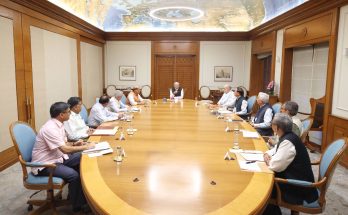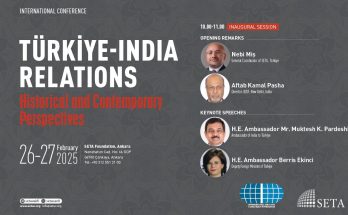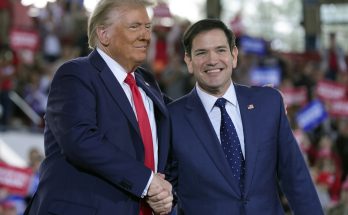 WASHINGTON: “Extraordinarily successful,” and re-energising of the India-US relationship. This is the assessment by the White House of India’s Prime Minister Narendra Modi’s recently-concluded visit to the US and his maiden talks with US President Barack Obama.
WASHINGTON: “Extraordinarily successful,” and re-energising of the India-US relationship. This is the assessment by the White House of India’s Prime Minister Narendra Modi’s recently-concluded visit to the US and his maiden talks with US President Barack Obama.
The talks between the leaders of the world’s largest democracies on September 29 and 30 reignited the fading spark in the India-US relationship and raised the bar by positing the US as India’s lead partner in India’s developmental journey and transformation.
Mr Obama hosted a private dinner for his Indian guest in the Blue Room of the White House September 29 that provided an opportunity for the two leaders to forge personal equations that was reflected in substantive outcomes following the full-spectrum talks September 30.
In his last engagement at a reception hosted by the USIBC in Washington DC September 30 just before boarding his special flight back home, Mr Modi told the US’ corporate titans that he saw his visit to the US as successful and he was returning home satisfied with the outcomes.
The White House has shared this largely positive assessment of Mr Modi’s September 26-30 visit to the US. “In sum, I would say that the assessment on our part is that the Prime Minister’s visit was extraordinarily successful. It has provided a boost in terms of the vision and focus that we have for our bilateral relations,” Phil Reiner, Senior Director for India at the National Security Council, told foreign correspondents in the US capital Oct 2.
“We’re excited to be moving forward with a re-energised strategic partnership. The US continues to strongly support a prosperous India that plays an important role in the global stage, and I think the Prime Minister’s visit really provided the opportunity for the two leaders to discuss that vision that’s necessary in order to set the framework under which we are going to operate going forward,” Reiner said.
Similarly, Assistant Secretary of State for South and Central Asia Nisha Desai Biswal said the visit “in some ways went a long way towards re-energising and re-launching the bilateral relationship.”
“It’s a relationship that fundamentally is not just government- to-government. It extends across all aspects of American society, American private sector, and engages the Indian society writ large and the Indian private sector, civil society, academic sector,” said Biswal, the first Indian-American diplomat to hold this key position in the state department.
“That informed the nature of the conversations and it also informed the nature of the initiatives and the agenda between the two countries of how to harness this very rich set of connections between our two countries towards achieving shared objectives,” she said.
“So it was quite refreshing and energising to both leaders that the Prime Minister shared his very robust vision for India’s transformation, and he talked about the kinds of things that he would like to be working on over his tenure, which I think resonated with the President, resonated certainly with Secretary (of State John) Kerry and all of us who had the opportunity to engage on that,” Biswal said.
Author Profile

- Manish Chand is Founder-CEO and Editor-in-Chief of India Writes Network (www.indiawrites.org) and India and World, a pioneering magazine focused on international affairs. He is CEO/Director of TGII Media Private Limited, an India-based media, publishing, research and consultancy company.
Latest entries
 India and the WorldJune 16, 2025Amid Pakistan-Turkey nexus, Cyprus joins India against cross-border terror
India and the WorldJune 16, 2025Amid Pakistan-Turkey nexus, Cyprus joins India against cross-border terror India and the WorldMay 8, 2025Pahalgam payback: India exposes Pakistan’s lies, misuse of religious sites for training terrorists
India and the WorldMay 8, 2025Pahalgam payback: India exposes Pakistan’s lies, misuse of religious sites for training terrorists India and the WorldMay 3, 2025IMEEC provides a democratic alternative to BRI: Italy’s former foreign minister (Interview)
India and the WorldMay 3, 2025IMEEC provides a democratic alternative to BRI: Italy’s former foreign minister (Interview) India and the WorldApril 21, 20253T Template for India-US Mega Partnership
India and the WorldApril 21, 20253T Template for India-US Mega Partnership







